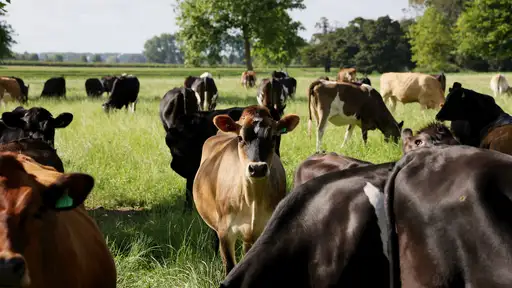MEDIA RELEASE
Each year, LIC collects about 11 million milk samples from dairy farms across New Zealand and takes these to LIC laboratories to be processed and analysed.
Results from this service, known as a herd test, allow farmers to rank individual cow performance and make informed decisions around breeding, culling, feed and health treatments.
The new machines automate the weighing and sampling process at LIC’s herd test laboratories in Hamilton and Christchurch using a combination of laser light measurement, barcode scanning, mechanical rotation and syringe liquid transfer.
Brent Wollaston, LIC’s national herd testing manager, says the machines, which replace a 50-year-old manual process, represent the future of the industry.
“The conventional weigh station process was labour intensive and highly repetitive. On a peak day, staff would be handling up to 90,000 flasks which presented some health and safety risks such as RSI.
“The manual nature of the work also resulted in occasional spills and mixing inconsistences. It was an opportunity ripe for automation.”
The custom designed machines were developed over the past three years by LIC staff in conjunction with Intellitech Automation, a New Zealand company specialising in robotic machinery.
Wollaston says the machines showcase “kiwi innovation at its best”.

The machines had to achieve accuracy of weight measurement and subsampling volumes, consistent sample mixing, full traceability of samples, and no sample contamination. Because of these unique challenges, we weren’t able to use off-the-shelf automation and set about designing our own bespoke solution.
Brent Wollaston, LIC national herd testing manager
LIC invested $3.2 million in developing the five machines and expects they will result in recurring savings within two years and more importantly, benefits for their customers.
“For farmers this automation will result in even more accurate results to guide critical decision making on-farm,” says Wollaston.
LIC chief executive Wayne McNee says the new robotic technology is reflective of agriculture’s “high-tech future” and the future of work.
“New innovation such as this opens up more opportunity for high-skilled, high-value roles in our sector and is likely to attract a new generation to agricultural roles.
“At LIC we are aiming to stay ahead of the innovation curve so we can maximise value and drive the next wave of productivity gains for New Zealand farmers. It’s important our sector takes full advantage of emerging technologies like robotics so we can continue to lead the way and be the disruptor, not the disrupted.”
LIC will be completing the rollout of the machines in its Christchurch laboratory this December and is continuing to evaluate options to further automate its herd testing operation, including with in line milk meter technology.




